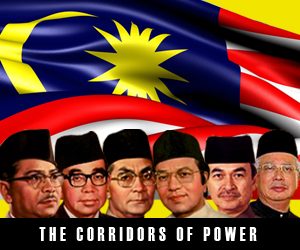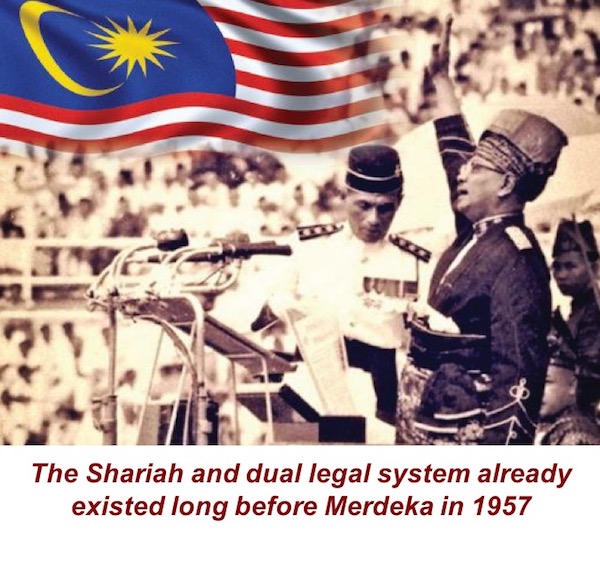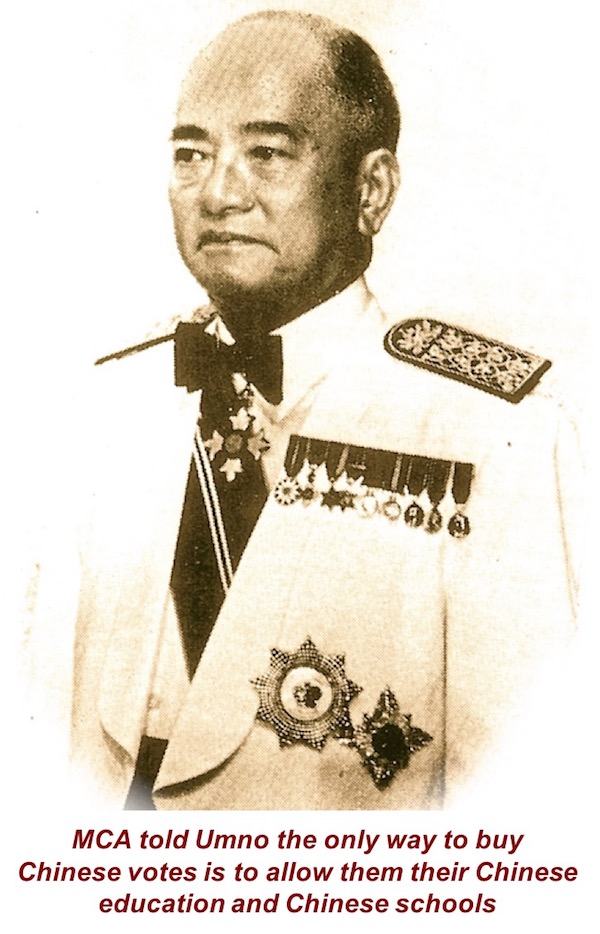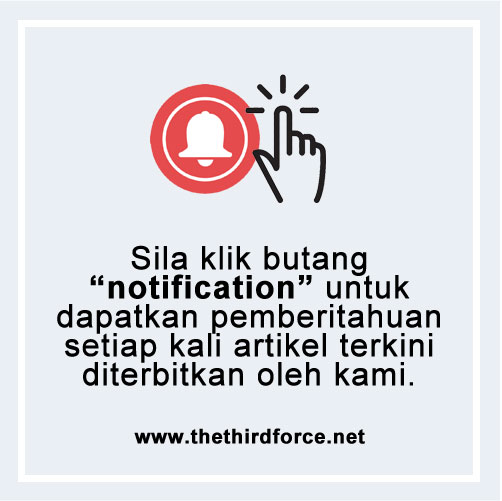
So, if Umno or the government uses Chinese education and Chinese schools as a bribe or dedak to buy Chinese votes, and if the Chinese do not vote for the Umno-led Barisan Nasional, then why continue to bribe the Chinese with this Chinese education and Chinese schools dedak? You bribe someone to get something. If you do not get what you bought then why continue with the bribe?
THE CORRIDORS OF POWER
Raja Petra Kamarudin
Most misunderstandings occur when there is a communication breakdown or a lack of communication. There are times when one party, or both parties, refuse to see the other person’s point of view or pretends to not understand the other person’s point of view. Then there are those who raise allegations of racism to outshout the other person in the debate. Allegations of racism are very effective and normally causes the other party to back down.
There are two ‘sacred cows’ in Malaysia. One is the Chinese schools/education sacred cow and the other is the Islam/Shariah sacred cow. If you criticise or attack Chinese schools or Chinese education they would call you anti-Chinese and if you criticise or attack Islam or the Shariah they would call you anti-Islam. So most would not want to touch these issues with a ten-foot pole.
The non-Muslims, in particular the DAP Chinese, oppose the Shariah, in particular those laws in the Shariah that touch on crimes and punishment. The DAP Chinese do not hide their opposition to the Shariah and are very open about it.

What the DAP Chinese see as openness is seen by the Muslims as arrogance. The DAP Chinese are so arrogant that they no longer hide their opposition to the Shariah and dare to openly oppose it. The fact that DAP unilaterally closed down Pakatan Rakyat and formed Pakatan Harapan so that PAS could be punished for tabling a Private Member’s Bill on Syariah Amendment in Parliament speaks volumes regarding DAP’s open opposition to the Shariah.

The DAP Chinese and most non-Muslims argue that the Private Member’s Shariah Amendment Bill violates the Federal Constitution of Malaysia and that is why they oppose it. They also argue that Malaysia cannot have two sets of laws or a dual judicial system. They add that they fear non-Muslims will in time be subjected to Islamic laws.
All three arguments are rejected by Muslims. First of all, as far as Muslims are concerned, the Shariah has nothing to do with the judicial system but is about religion. And non-Muslims should not be teaching Muslims how to practice Islam. Secondly, Malaysia has always had the Shariah and the dual judicial system since long before Merdeka. When the non-Malays sought Malayan citizenship in 1957 the Shariah had already been in existence. So why now after 60 years the non-Malays are suddenly opposed to the Shariah?
When the Malays and non-Malays, or Muslims and non-Muslims, perceive this issue from two different dimensions for sure no agreement can be reached. The Muslims see this issue as the non-Muslims interfering in Islam and violating the very foundation of how Malaya was formed. When the non-Malays asked to become citizens in 1957 the Shariah was already there and that was the terms for them to be given citizenship: to accept Islam as the religion of the Federation. So why oppose the Shariah now? If they cannot accept the Shariah or the dual judicial system then they should have left the country in 1957 and not ask to become citizens of Malaya.
That is a very simple argument the Malays or Muslims have, which the non-Malays or non-Muslims would, of course, find offensive. But then if the non-Muslims live in Saudi Arabia, or even in Brunei, they would have to accept and observe local laws as well. Can Muslims in the UK, Australia, or any other ‘Christian’ country, slaughter cows and goats in front of their house on Hari Raya Korban day? That is one of the rituals in Islam (just like Hindus carrying the Kavadi) but local laws will not allow that. So Muslims are forced to abandon their Islamic ritual and observe local laws.
The issue of Chinese education and Chinese schools is the same. The Chinese see it as their right. The Malays see it as a privilege. Rights belong to you and cannot be taken away. Privileges do not belong to you and can be taken away. For example, a passport is not a right but a privilege and your passport can be taken away from you if you misuse it.
READ MORE HERE



